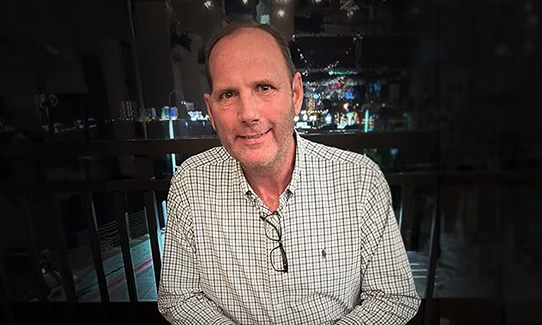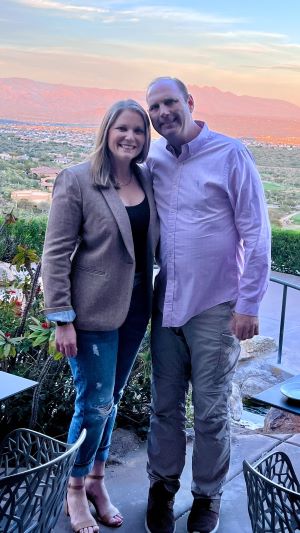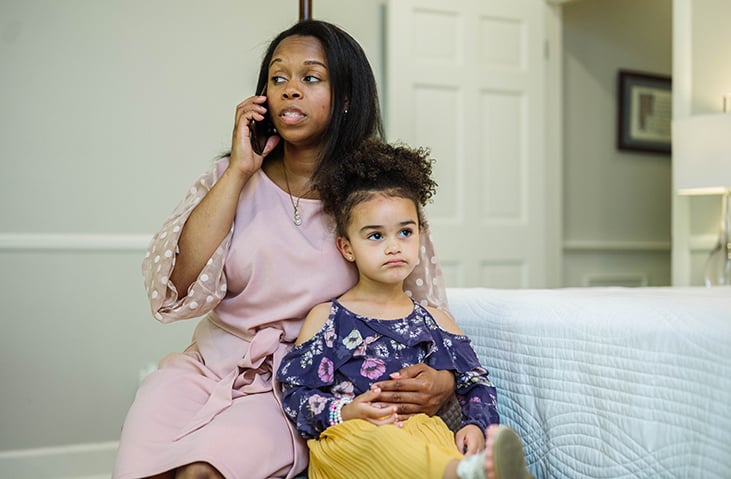

May 08 2024
Tragedy to Triumph


Summary
When Dr. Lonnie Miller traveled to visit family in January 2023, no one could have imagined how this trip would change his life.
When Dr. Lonnie Miller traveled to visit family in January 2023, no one could have imagined how this trip would change his life.

Dr. Miller, who grew up near Fulton, is a hematologist-oncologist based in Pensacola, Florida. At the time of the trip, he was completing a short-term assignment in Colorado and flew from there to Memphis. He rented a car and, because his flight arrived late at night, he checked into a hotel rather than disturb family.
But when no one had heard from Lonnie the following day and he wasn’t replying to calls or texts, his girlfriend, Dr. Heather Steele, started to worry. She asked the local police to check on Lonnie in his hotel room; they did and replied that he was asleep and snoring. By 11 p.m. and still no word, “I begged the officers to go back and check on him again,” she says. “He wasn’t snoring… he was in trouble.”
An ambulance rushed Dr. Miller to North Mississippi Medical Center in Tupelo, where doctors discovered he had a large subdural hemorrhage, or brain bleed, and very little neurological function.
“In a healthy person, the skull acts as a closed box to protect the delicate brain inside. When bleeding or swelling occurs as a result of injury or stroke, a life-threatening situation can rapidly evolve,” explains neurosurgeon Dr. John Winestone. “The growing blood clot or injured brain starts to take up more space, driving up the pressure inside of the closed skull. This can quickly lead to permanent brain damage and even death. I am thankful for our surgical and anesthesia team who are always available at a moment’s notice to come together and treat such cases.”
“We had excellent care,” Heather says. “Dr. Winestone was very direct. He didn’t sugarcoat it, but he always left room for hope.”
Dr. Winestone performed emergency surgery to reduce the pressure on Lonnie’s brain. Dr. Winestone removed a piece of Lonnie’s skull and stored it in his abdomen for safekeeping with a good blood supply until the pressure subsided.
“Everyone was very honest with us that he might not survive,” Heather says. “They told us that the first four days were critical.”
Lonnie spent three weeks in the Intensive Care Unit, intubated and relying on a ventilator to breathe.
During this time, he lost 65 pounds and became increasingly weak—but he was alive, and that was more than they had dared hope at first. “He could signal ‘yes’ or ‘no’ with his thumb and he was able to wiggle some of his toes,” she says. “And he would turn his head to certain voices.”
After some time on the ICU stepdown unit, he was able to wean from the ventilator and transfer to Shepherd Center in Atlanta for intense rehabilitation. By April, the pressure on his brain had subsided enough that the piece of skull that Dr. Winestone had removed was restored to its proper place.
But because of the extent of damage from the brain bleed, Lonnie was slow to respond to treatment.
“He had to relearn how to push air through his diaphragm,” Heather says. “He could speak up to three words in a row, but they were very quiet. He could sit up on his own for three to four minutes, but he had trouble controlling his head.”
Then it happened. “Sometime in June, it was like all of a sudden, his brain started to wake up and he really started to make progress,” Heather says.
From Shepherd Center, Lonnie transferred to a rehabilitation facility closer to home in Pensacola. “That’s when I finally started being able to remember things,” he says. “I would take what I learned in therapy and do it nonstop in my room. I wanted more rehab because I wanted to get stronger.”
His hard work paid off. Today, Lonnie is back living independently at home, driving and even working three days a week. “You can’t give up,” he says. “If you give up, you just die. You just have to keep trying.”
Both Lonnie and Heather realize things could have turned out much differently. “Dr. Winestone could have just as easily seen the scans and said, ‘tell the family he’s not going to make it.’ Just keep him comfortable,’” Lonnie says.
“Dr. Winestone and his team were willing to take a chance for Lonnie,” Heather says. “And that’s the only reason we’re here today.”
“Dr. Winestone could have just as easily seen the scans and said, ‘tell the family he’s not going to make it,'" says Dr. Lonnie Miller.
Request an appointment online or call (662) 377-PAIN (7246).

Subscribe to Our Newsletter
Like this content and want to get more? Sign up for True North, the health and wellness newsletter from North Mississippi Health Services!

Subscribe to Our Newsletter
Like this content and want to get more? Sign up for True North, the health and wellness newsletter from North Mississippi Health Services!

Nurse Link®
Not sure if you need Urgent Care or the ER? Call 1-800-882-6274 anytime to speak directly to a registered nurse and get immediate answers. Using computerized medical protocols, nurses direct callers to the most appropriate treatment. Our nurses are available 24 hours per day, seven days per week.